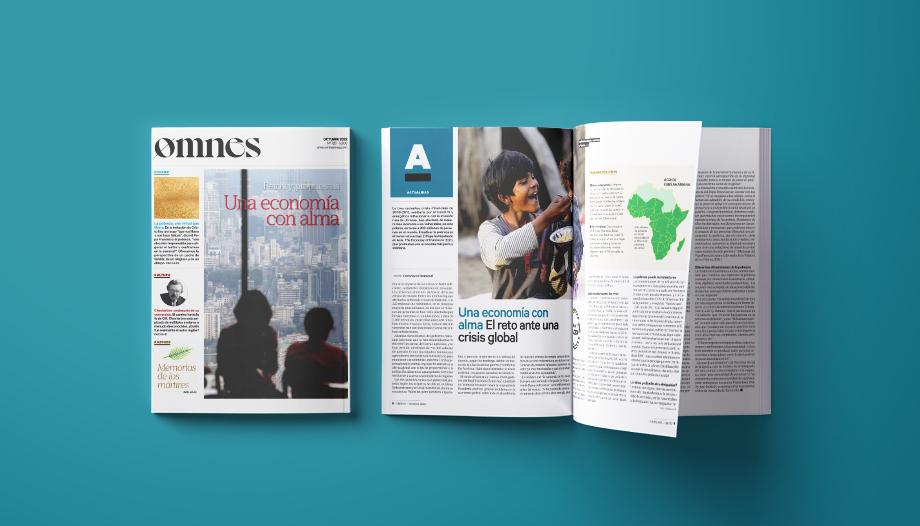The 6th World Day of the Poor will be celebrated on November 13. The forms of poverty in the world continue to be multiple, and due to the three recent crises - the financial crisis of 2009-2013, the health crisis caused by Covid-19 and the inflationary energy crisis with the Russian invasion of Ukraine - they affect above all the poorest, who number around 800 million people in the world. To help eradicate it, the Pope has promoted in Assisi the meeting of "The Economy of Francesco", which promotes a more just and supportive economy.
This situation is addressed in a report in the October issue of Omnes, followed by an article by Raúl Flores, coordinator of the Caritas Spain study team and technical secretary of the Foessa Foundation, and an interview with Isaías Hernando, co-coordinator of the "Economy of Communion" and member of the global community of "The Economy of Francesco".
In its Message for the Day of the PoorThe Pope points out that in the Gospel we find a poverty "that frees us and makes us happy," because it is "a responsible choice to lighten the burden and focus on what is essential. This other form of poverty, which is not a lack of resources but a Christian virtue proposed and lived by Jesus Christ, is the subject of a series of articles dedicated to each of its expressions in the different states of life: in the life of the laity, ordinary Christians in the world, priests and consecrated persons. They are written by Pablo Olábarri, a lawyer and father of a family, Bishop José María Yanguas of Cuenca (Spain), and Francisco Javier Vergara, a Franciscan religious, who presents a profound personal testimony.
Among the remaining exclusive contents of the magazine, that is, not offered openly on the website but reserved to subscribers of the paper or online version (which they can read through the subscribers' area of this website), the explanations of Juan Luis Lorda on "Tradition and Traditions" stand out. It is a necessary clarification, since the post-conciliar crisis showed in the Church a dialectic between progressivism, which wanted another Council "at the height of the times", and traditionalism, hurt by the novelties of Vatican II or the post-conciliar period. Such dialectic made necessary the clarification of several concepts, among them the Catholic notion of Tradition. This is one more article in the series on "Theology of the 20th century" written by the professor of Theology at the University of Navarra.
The Holy Fathers are at the "roots of our tradition". Antonio de la Torre emphasizes how they bear witness to their faith in their institutions and writings; the martyrs, for their part, do so by offering their lives. In his article in this issue, he presents some of the writings that have preserved for us the memory of their witness.
Professor Juan Luis Caballero is the author of the text on Sacred Scripture in this issue. It is dedicated to commenting on verses 1 to 16 of the fourth chapter of the Letter of St. Paul to the Ephesians: "And he gave gifts to men".
Gilbert Keith Chesterton became a Catholic one hundred years ago, in 1922. He is much quoted, but little known. It is worthwhile to look at characters such as Thomas More, John Henry Newman, or Chesterton himself to discover reasoning of a clear and surprising logic. We suggest the article by Victoria de Julián and Jaime Nubiola.
The "Tribuna" is written by the Cardinal Archbishop of Madrid, Carlos Osoro Sierra, who points out the keys to the Christian commitment demanded by today's society: to renew the missionary sense to bring the Good News in all environments.







